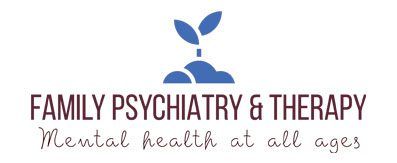Getting a psychiatric evaluation may seem scary. Your thoughts, feelings, habits, and perceptions will be examined with a careful eye. You imagine laying on a leather couch, a bespectacled figure peering at you over his notebook.
The psychiatrist will ask you a battery of questions, and you might be worried about giving the “wrong” answer. Thankfully, psychiatric evaluations are much less intense these days. There’s no need to become anxious about having a psychiatric evaluation. We all get regular medical checkups for our body’s health, and we should make a habit out of getting similar checkups for our mind.
Think about the purpose of an annual physical with your physician. You and your physician talk about your lifestyle and your concerns, then your physician will take a few measurements of your body to make sure that everything is in order.
If your physician finds any issues, it’ll probably be before they’re an emergency, and they can be dealt with preventatively. Preventative care is always better than reactive care because you never have to go through getting sick.
Having a professional evaluate your mental health is valuable for the very same reason. Unlike physical illnesses, mental illnesses are invisible, and can’t be directly measured by a stethoscope, even if you’re acutely suffering.
The primary tool that psychiatrists use to measure the different features of your mental health is a discussion with you. The discussion revolves around a diagnostic questionnaire, or free to roam wherever you take it. If you can talk about your areas of concern and identify issues before they spiral into an emergency, you’ll mitigate or avoid the effect of untreated mental illness.
Opening up
Some forms of psychiatric evaluation, such as therapeutic assessment, are intended to help you learn about yourself while the practitioner identifies areas of concern. Even if your practitioner isn’t performing a therapeutic assessment, simply answering the questions involved in the psychiatric evaluation is more than likely to give you a new understanding of yourself.
The more that you decide to open up to your practitioner during the evaluation, the better your diagnostic and therapeutic results will be.
It’s tough to be vulnerable to a stranger, but it can be quite cathartic too. If you’re feeling aversive to being examined, consider the bright side: unlike at the regular doctor’s office, diagnosis can make you feel better immediately.
Many patients experience “eureka!” moments while in their first psychiatric health evaluation, and can take home a new and more positive view of themselves. Introspection about our mind, habits, and emotions can only take you so far. Sometimes, a practitioner’s simple questioning and a setting of calm investigation are enough to reveal your psyche to yourself.
Being open with your practitioner during the evaluation is necessary to identify areas of difficulty which you might not be consciously aware. Many mental illnesses are insidiously complex and leave fingerprints that your psychiatrist will be looking for in places you might not expect. During the evaluation, don’t skimp on details, even if you’re not sure whether they’re relevant or not.
Many mental health disorders are eminently treatable, and not all are serious. Including an abundance of information will help your practitioner assess if you have any mental illnesses, how severe they are, and what the proper course of treatment will be if any.
The path to feeling better
Having a psychiatric evaluation on a regular basis is a great habit to maintain your health, but what if you’re mentally ill? It turns out that there are psychiatric evaluations for specific mental illnesses, too.
Psychiatric evaluations are doubly important for anyone who is mentally ill or suspects that they are suffering from a mental illness. If your initial evaluation shows that you meet the clinical criterion for suffering from a specific illness, your practitioner will likely follow up with a second illness-specific evaluation.
The illness-specific evaluation will assess the subtype of your illness, the health risks and lifestyle impacts that the illness poses, how severe the illness is, and if there are any factors which rule out the first line treatments. As your treatment progresses, your psychiatrist will likely perform the same evaluation multiple times to track the progress of your convalescence.
These follow-up evaluations can get a bit repetitive if your practitioner keeps the diagnostic questions in the same order and asks the same ones every time, but hang in there. Disease-specific evaluations provide a consistent objective measurement of your illness and are important for insurance purposes as well as your medical records.
It’s also useful to have a quantitative history of how you’ve been feeling. When we’re mentally ill, it can seem as though every day is as difficult as the last. Having an objective record of how quickly you’ve been recovering can be quite uplifting.
Your practitioner may not let you view the actual evaluations themselves if they think it would be imprudent, but you can rest assured that any verbal assessment of your progress will be based on the objective measurement of the evaluation.
Having regular psychiatric assessments as part of your healthcare strategy will help you to lead a more content life. Just like with your bodily health, knowing about your mental health is half the battle—or perhaps, even more.



